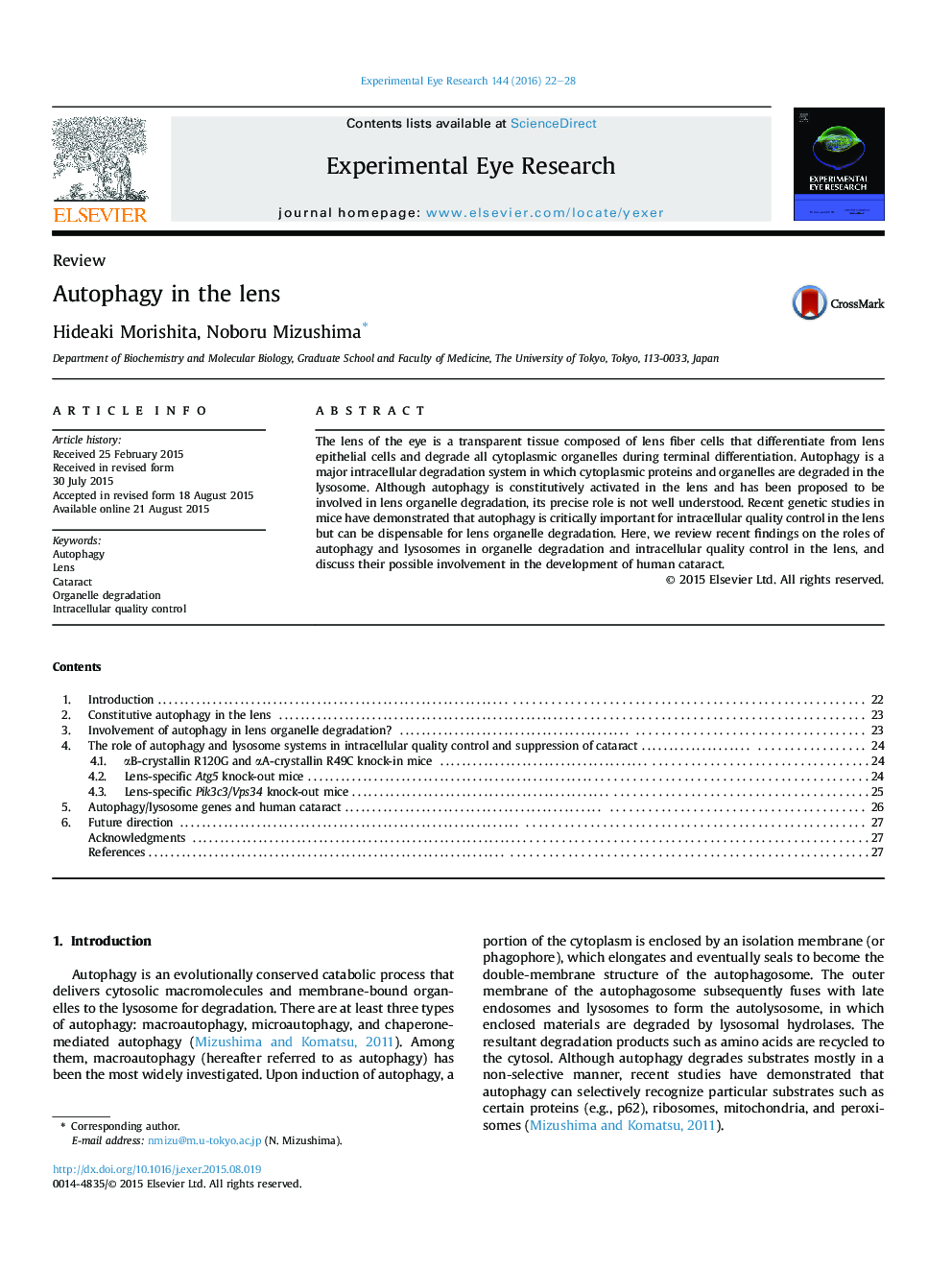| Article ID | Journal | Published Year | Pages | File Type |
|---|---|---|---|---|
| 4011078 | Experimental Eye Research | 2016 | 7 Pages |
•Autophagy maintains intracellular quality and suppresses cataract.•Organelle-free zone is normally formed in Atg5- or Pik3c3-deficient mouse lens.•Lens development after birth requires the Pik3c3-dependent endocytic pathway.
The lens of the eye is a transparent tissue composed of lens fiber cells that differentiate from lens epithelial cells and degrade all cytoplasmic organelles during terminal differentiation. Autophagy is a major intracellular degradation system in which cytoplasmic proteins and organelles are degraded in the lysosome. Although autophagy is constitutively activated in the lens and has been proposed to be involved in lens organelle degradation, its precise role is not well understood. Recent genetic studies in mice have demonstrated that autophagy is critically important for intracellular quality control in the lens but can be dispensable for lens organelle degradation. Here, we review recent findings on the roles of autophagy and lysosomes in organelle degradation and intracellular quality control in the lens, and discuss their possible involvement in the development of human cataract.
